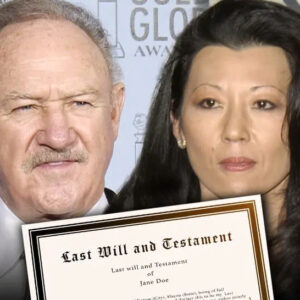In a surprising development, NBA legend Michael Jordan has turned down the opportunity to shoot a commercial with acclaimed actor Robert De Niro, with sources indicating that the refusal stemmed from concerns about the AD’s politically charged roles. The decision by Jordan, known for his apolitical stance throughout his career, has sparked a wide range of reactions, with fans, analysts, and media figures pondering what this means for the ever-evolving relationship between celebrities, brands, and social causes.

According to insiders, the proposed commercial aimed to address several social and political issues that have become central to public discourse. De Niro, an outspoken advocate on numerous social issues, was reportedly enthusiastic about the project, but Jordan’s reluctance to participate in what he perceived as a “woke” ad led him to decline. “Michael felt that getting involved in a message with such strong political overtones didn’t align with his public persona,” an anonymous source close to the basketball icon revealed. “He has always preferred to keep his focus on sports, business, and philanthropy, rather than wading into divisive social issues.”
For decades, Michael Jordan has remained one of the most influential figures in sports, largely maintaining a neutral stance on political matters. His approach has sparked debates about whether public figures should use their platforms to advocate for social change or focus solely on their professions. Jordan’s refusal to shoot the commercial with De Niro is consistent with his career preference to let his actions speak louder than words, particularly when it comes to his philanthropic contributions rather than direct political statements.

The decision has already sparked mixed responses from fans and the media. Many Jordan supporters praised his commitment to staying true to his brand and values, seeing his stance as a reminder that not all celebrities should weigh in on political issues. “Jordan’s choice shows that he’s still his own man, and that he’s not bowing to trends or pressure,” one fan commented on social media. “He’s built his legacy by staying focused, and I respect that he’s staying true to himself.”
Others, however, believe that Jordan’s platform as a sports and business icon imposes a certain level of responsibility on him to address social issues, especially in the current climate. “Athletes have so much influence,” noted one media commentator. “Staying silent can sometimes speak louder than words. Fans admire Jordan, and they want to know where he stands.” This stance highlights the broader debate surrounding celebrity influence and the expectation that public figures take a stand on pressing issues.

Robert De Niro, known for his outspoken political views, has long used his public persona to promote the social causes he believes in. Although he hasn’t directly commented on Jordan’s decision, experts close to the actor say he respects Jordan’s stance and understands the complex dynamics at play. “Robert recognizes that everyone has their own comfort zone when it comes to activism,” a source shared. “He’s never shied away from making statements, but he respects Michael’s choice to keep his focus on other priorities.”
Interestingly, this isn’t the first time Jordan’s reluctance to engage in political discourse has attracted public attention. In the 1990s, his famous remark, “Republicans buy sneakers too,” was often interpreted as a reflection of his neutral stance on political matters, particularly during the peak of his NBA career. Although he later clarified that the comment was made in jest, the sentiment has followed him, marking him as an athlete who preferred to stay out of the political waters.

Marketing and advertising experts have also weighed in on the impact of Jordan’s refusal, particularly at a time when brands are increasingly aligning themselves with social causes to appeal to a younger, socially conscious audience. Some analysts argue that Jordan’s decision could influence other high-profile figures to be more selective about brand endorsements, particularly when those endorsements have political implications. “Not every brand or campaign has to be about making a statement,” explained advertising consultant Linda Harper. “Jordan is setting an example by showing that celebrities can, and should, decide what they feel comfortable supporting, and it’s okay to step back when something doesn’t align with their core values.”
As for the commercial itself, it’s unclear whether the project will move forward with a different partner for De Niro or if it will undergo revisions. Industry experts speculate that the project could be restructured to maintain its focus on social issues while selecting a new cast member who shares the campaign’s vision. The decision to continue without Jordan may shape the tone and reach of the ad, and some wonder if the absence of a sports legend like him will affect its resonation with a wider audience.
For now, Jordan’s choice reflects a broader conversation about the role of celebrities in public discourse, especially in an era when fans are increasingly vocal about their expectations. While some celebrate his consistency and commitment to his values, others hope that influential figures like him will one day feel compelled to participate in discussions that shape the social landscape.
Regardless of one’s opinion, Michael Jordan’s legacy remains firmly intact, solidified by his athletic achievements and business acumen. This decision underscores his continued adherence to the philosophy that has guided him for decades: focus on what you know and let your actions speak for themselves.





